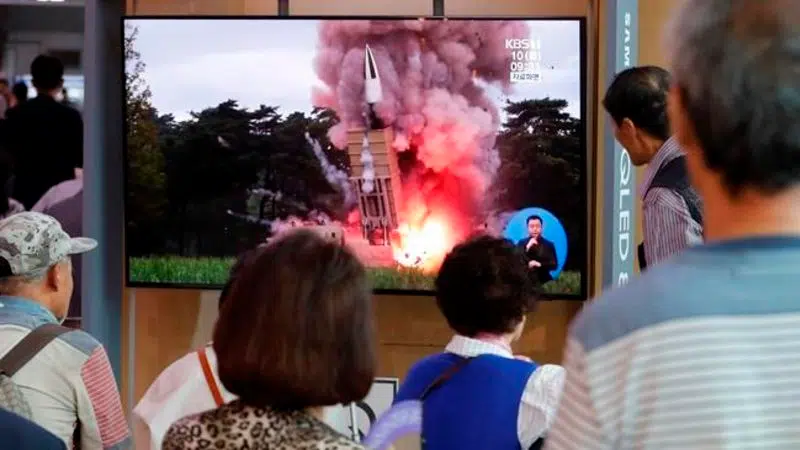
North Korea fires 2 projectiles after offering talks with US
SEOUL, Korea, Republic Of — North Korea launched two projectiles toward the sea on Tuesday, South Korea’s military said, hours after the North offered to resume nuclear diplomacy with the United States but warned its dealings with Washington may end without new U.S. proposals.
The launches and demand for new proposals were apparently aimed at pressuring the United States to make concessions when the North Korea-U.S. talks restart. North Korea is widely believed to want the United States to provide security guarantees and extensive relief from U.S.-led sanctions in return for limited denuclearization steps.
The North Korean projectiles fired from its South Phyongan province, which surrounds its capital city of Pyongyang, flew about 330 kilometres (205 miles) across the country and in the direction of the waters off its east coast, according to South Korea’s Joint Chiefs of Staff and Defence Ministry.
The military said South Korea will monitor possible additional launches. The JCS didn’t immediately say whether the weapons were ballistic missiles or rocket artillery. “More detailed analysis is needed to determine the exact specifications,” JCS spokesman Kim Joon-rak said.
